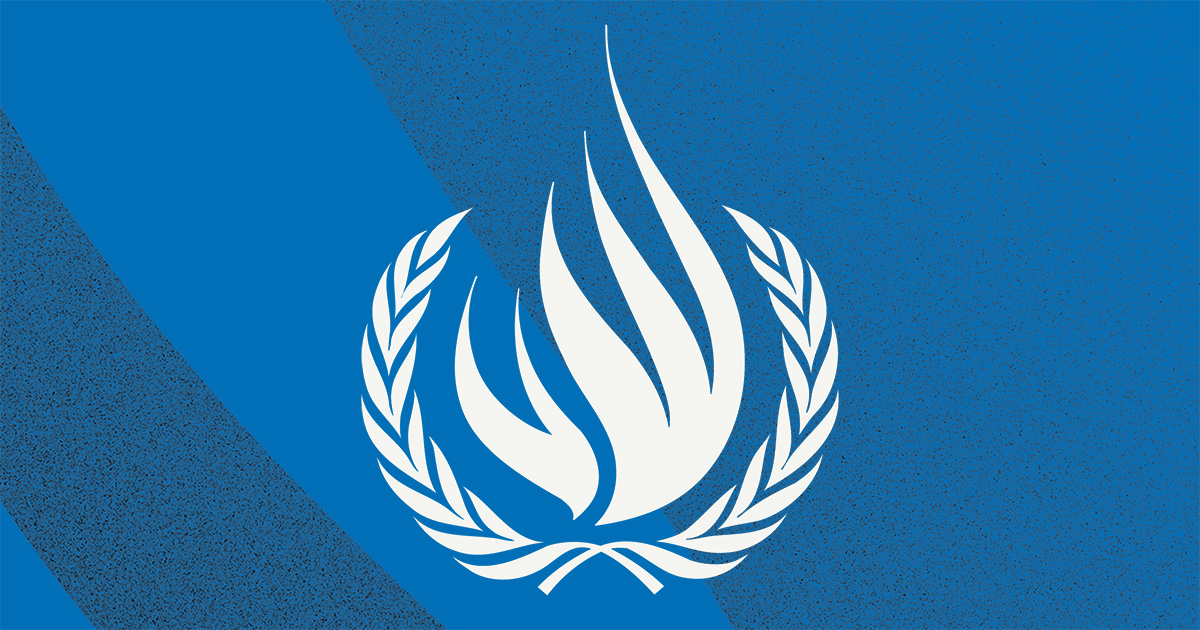
The Committee against Torture today discussed reports on follow-up to concluding observations, individual communications, and reprisals under the Convention against Torture and other Cruel, Inhuman or Degrading Treatment or Punishment.
Bakhtiyar Tuzmukhamedov, Committee Rapporteur on follow-up to concluding observations under article 19 of the Convention, presenting his report, said that no follow-up reports had been received during the period under review. Several countries had not met the deadlines for submission of follow-up information: Antigua and Barbuda, Bangladesh, Benin, Burkina Faso, Cabo Verde, Congo, Djibouti, Gabon, Ghana, Guinea, Holy See, Indonesia, Madagascar, Mozambique, Philippines, Rwanda, Seychelles, Sierra Leone, Sri Lanka, Syria, Togo, Yemen and Zambia.
Mr. Tuzmukhamedov said he had sent a second reminder letter to Bangladesh on 3 March 2022 calling for the submission of follow-up information, but to date no response had been received. An alternative follow-up report had been submitted by a non-governmental organization in relation to the follow-up replies submitted by Niger. Mr. Tuzmukhamedov expressed appreciation for the information provided by non-governmental organizations and civil society groups.
During the period under review, in consultation with Country Rapporteurs and the Secretariat, Mr. Tuzmukhamedov said he had continued to assess the information provided by States parties to monitor whether all the issues identified by the Committee for follow-up had been addressed. He communicated with concerned States parties once replies had been received and assessed, conveying analysis carried out by the Country Rapporteurs and specifying pending issues. He sent a communication to Tajikistan on 4 May 2022. States parties were encouraged to provide a plan for the implementation of the remaining recommendations, however, none of the replies from States parties addressed the remaining recommendations of the Committee.
Mr. Tuzmukhamedov encouraged States parties to make use of the dedicated web page for the follow-up procedure. All relevant documents, including the recommendations identified for follow-up by the Committee, the information submitted by States parties, the correspondence with concerned States parties and the public reports submitted by national human rights institutions, non-governmental organizations and other stakeholders, were available on that web page. A compendium of the follow-up procedure as exercised since 2003 may also be found on that page.
Huawen Liu, Committee Rapporteur on follow-up to communications, presented under article 22 (individual complaints procedure), said the Committee had considered five communications and submitted follow-up observations for each. The communications concerned cases against Tunisia, Algeria, Morocco and Argentina. For the first four cases, follow-up comments and observations demonstrated a lack of implementation. For the fifth case, Yrusta and del Valle Yrusta v. Argentina (Communication No. 778/2016), follow-up comments and observations demonstrated partial implementation. For each case, the Committee decided to continue follow-up dialogue and consider further steps in light of the submissions received.
The Rapporteur on follow-up to reprisals, Ana Racu, said that no new allegations of reprisals had been reported to the Committee since it had last met. She referred to two cases already before the Committee.
The first case concerned alleged reprisals faced in Morocco after reporting a violation of rights to the Committee. The Committee did not receive a response from the Government of Morocco to a letter sent regarding the allegations of reprisal. The Committee was considering what further steps should be taken to address this case and emphasised the importance of the adoption of its 2016 decision on this case.
The second case referred to allegations of reprisals in Kazakhstan against an individual imprisoned in a penal colony. The Rapporteur said she had asked the State party to urgently provide information regarding the situation described by the complainant, including measures taken to ensure that he was not subject to reprisals due to his cooperation with the Committee. The Committee’s decision regarding this case was to continue dialogue with the State party.
Ms. Racu also reported that she had participated in the general induction course for new treaty body members, giving a comprehensive presentation on the Convention’s mechanism against reprisals.
Summaries of the public meetings of the Committee can be found here, while webcasts of the public meetings can be found here. The programme of work of the Committee’s seventy-third session and other documents related to the session can be found here.
The Committee will next meet in public on Friday, 13 May at 10 a.m. to adopt its annual report and programme of work for future sessions and close the seventy-third session.







